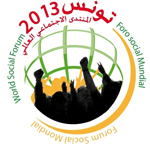Social Watch news
Published on Thu, 2012-11-08 09:25

Gujarati Legislative Assembly.
|
Gujarat Social Watch (GSW, member of Social Watch India) revealed this week, in its review of the 10th session of the 12th Gujarati Legislative Assembly, that the chief minister (head of the state government) Narendra Modi spoke only three times in the entire session, which lasted 30 days.
|
Published on Thu, 2012-11-08 07:43

A class on data capture, entry,
analysis, application, presentation
and dissemination at Ntinda Valley
Resort, Iganga. (Photo: DENIVA)
|
Uganda Bureau of Statistics (UBOs) and the Development Network of Indigenous Voluntary Associations (DENIVA, national focal point of Social Watch) have delivered a three-day training course on data management and report writing skills for several civil society organizations (CSOs).
|
Published on Thu, 2012-11-01 11:26
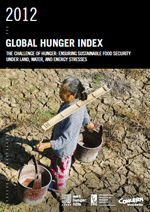
IFPRI's 2012
Global Hunger Index
|
“Decades of effort and rhetoric have failed to eradicate hunger in the world.” This is the emphatic and harsh conclusion of the Global Hunger Index. In 2000, more than a hundred presidents, kings, prime ministers and ministers from all over the world signed the Millennium Declaration in which they promised to spare no effort to, among other things, “cut by half (by 2015) the proportion of people suffering from hunger.” This goal will not be reached. More than a billion people will go to bed hungry tonight. There are more hungry people today than there were at the start of the century. The proportion has fallen because total world population has increased, but it has not fallen enough.
|
Published on Thu, 2012-11-01 09:44

The High Level Panel of
Eminent Persons.
(Photo: Eskinder Debebe/UN)
|
The High Level Panel (HLP) appointed by the UN Secretary General Ban Ki-moon to consider the post-2015 development agenda is opening in London the discussion on poverty eradication. Its members should have in mind the strong pronouncement of the civil society organizations that took part in a previous global online consultation: they demanded not to leave the human rights and the environment aside in the fight against poverty, and to address the growing inequality, among other requirements.
|
Published on Wed, 2012-10-31 13:19

Photo : Radio Canada
|
The province of Saskatchewan’s public liquor retail system is superior to both Alberta and British Columbia’s private scheme in terms of price, revenue generation and mitigation of social harm, concluded in a new report the Saskatchewan office of the Canadian Centre for Policy Alternatives (CCPA, one of the focal points of Social Watch in that North American country) and the Parkland Institute.
|
Published on Wed, 2012-10-31 09:56

Quinn Dombrowski/CC/Flickr
|
Developing countries are taking actions to promote cheaper medicines through compulsory licensing for the benefit of their populations, with Indonesia being the latest case. In one of his more recent columns The Star, one of the leading Malaysian newspapers, Martin Khor, executive director of South Centre, analyzes the current situation in the whole world.
|
Published on Mon, 2012-10-29 14:25
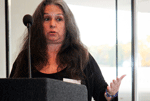
Anabela Lemos.
(Photo: Atte Keinänen/Kepa.)
|
"Land grabs" in the Global South have caused much debate and concern during the last couple of years, especially since the global food price crisis of 2008. Kepa, a platform for Finnish NGOs interested in development issues and focal point of Social Watch in that European country, held a discussion on the issue this month. Tuomo Alhojärvi wrote a report on the debate for Kepa’s website.
|
Published on Thu, 2012-10-25 11:41
The World Social Forum 2013 (WSF 2013) will take place in Tunis from the 26th to the 30th March. Its website was launched on 15th October, and that kicked off the registration process for organizations and for proposals of activities. In the Tunisian Secretariat members of the WSF 2013 are listed the two focal point of Social Watch in that country: the Tunisian League for Human Rights (LTDH) and the Tunisian Association of Democratic Women (ATFD).
|
Published on Thu, 2012-10-25 10:40
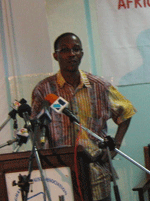
Yao Graham. (Photo: TWN-A)
|
Participation of relevant stakeholders, including communities at grassroots levels, will help ensure good management of natural resources in African nations, for economic growth and benefit of citizens, according to participants at the Coalition for Dialogue on Africa (CoDA), among them the coordinator of Third World Network-Africa (TWN-A), Yao Graham. The conference was held this week in Addis Ababa, ahead of the 8th African Development Forum (ADF VII).
|
Published on Thu, 2012-10-25 10:39
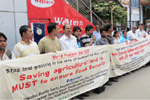
(Photo: EquityBD)
|
Seventeen civil society organization headed by EquityBD along with the South Asia Alliance for Poverty Eradication (SAAPE) carried out a human chain in Dhaka observing 16th October as World Food Less Day, the same date the United Nations proclaims as the World Food Day, to raise the voice on behalf the hungry people.
|
SUSCRIBE TO OUR NEWSLETTER
Submit

|








